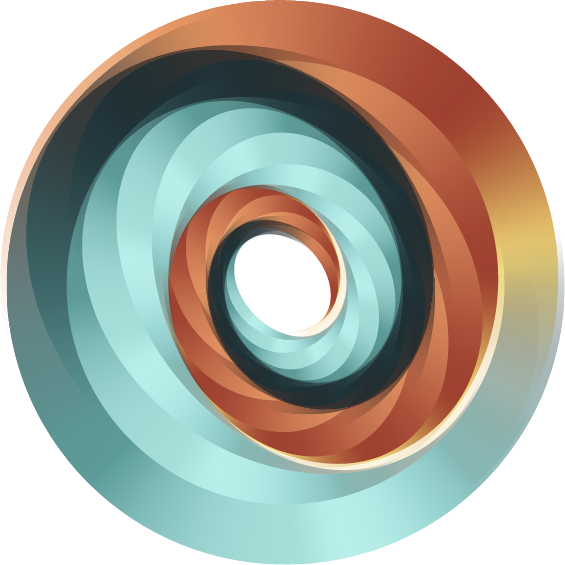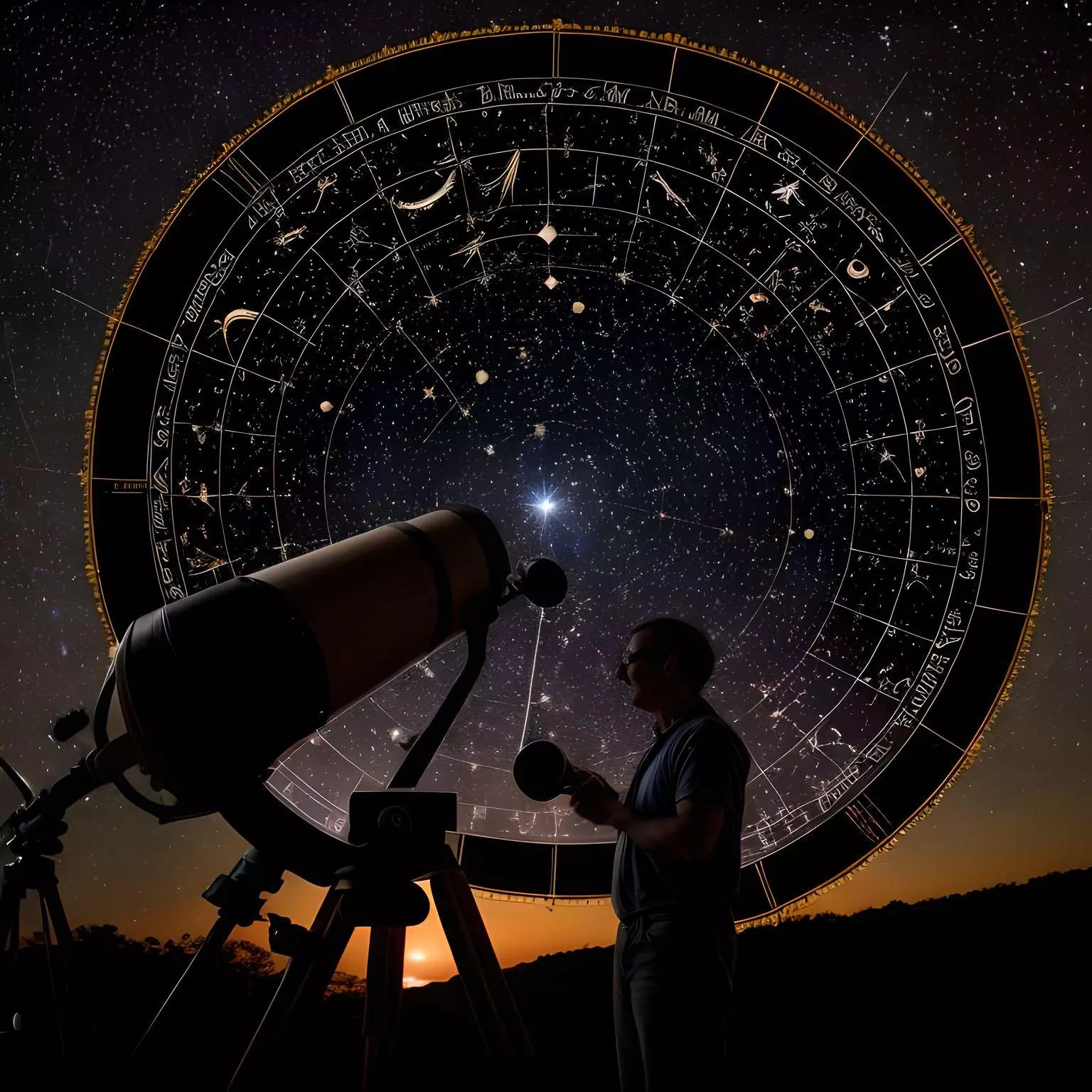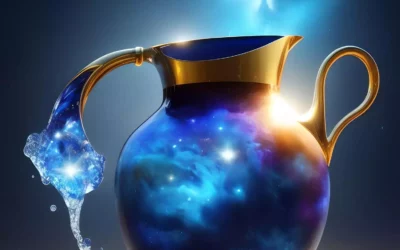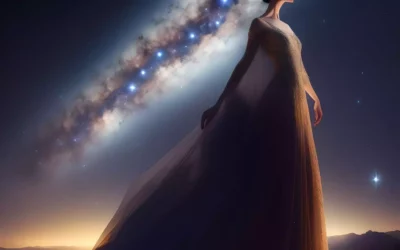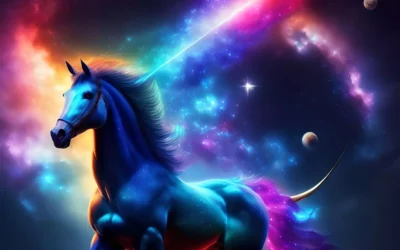As I delve into the mystical world of astrology, I can’t help but wonder about its fascinating history and the origin of one term we’ve all heard at some point – ‘horoscope.’
There’s something almost magical about the idea that celestial bodies could influence our lives, personalities, and fates. We’re all searching for answers in this complex universe, aren’t we? And it seems horoscopes have been a source of guidance and wisdom for centuries across different cultures.
The word itself piques my curiosity – why exactly is it called ‘horoscope’?
The journey to understanding why horoscopes are named so takes us back to ancient times when humans first started looking towards the stars for answers. It involves delving deep into languages long lost and exploring belief systems that have evolved over millennia.
But before we start on this spiritual exploration, let’s pause a moment to appreciate how universal our quest for understanding is – reflected in everything from cave paintings to digital apps predicting daily fortunes!
Join me as we uncover why it’s called ‘horoscopes’, tracing its roots right from ancient civilizations to its influence on modern society and envisioning what future might hold for horoscopes in this digital age.
The Ancient Roots of Astrology
You’d be amazed to discover that the roots of astrology and hence, your daily horoscope, reach back to ancient times, stirring feelings of awe and wonder in you.
The practice dates back thousands of years with the earliest astrological symbols appearing in Egypt around 3000 BC. This ancient wisdom was not only a way for our ancestors to understand the cycles of nature but also a means to explore the mystical connection between human beings and the cosmos.
The Zodiac constellations were central to this early form of astrology. They served as celestial guides for those seeking spiritual insight into their lives. Each constellation represented a distinct part of human experience: love, courage, wisdom, struggle, and so forth. It’s as if these cosmic patterns were whispering secrets about our destinies through their symbolic language.
Just imagine looking up at the night sky and seeing it not just as a beautiful spectacle but as an infinite canvas painted with stories about who we are and where we’re going.
Astrology evolved over time into what we now know as horoscopes – forecasts based on our zodiac signs that can offer guidance on our personal journeys. This incredible tradition is deeply embedded in history yet still vibrantly alive today; each day millions turn to their horoscopes hoping for a glimpse into what lies ahead or insight into themselves.
So remember when you read your next horoscope that you’re participating in an age-old ritual linking us all together across time and space – a testament to humanity’s enduring quest for understanding and connection within this vast cosmic dance.
The Meaning of the Word ‘Horoscope’
Ever wondered about the origin of that fascinating term ‘horoscope’? Well, let me share some enlightening insights on that.
The word ‘horoscope’ is quite ancient in its roots and comes from the Greek language. The etymology of ‘Horoscope’ is pretty interesting: it’s derived from two Greek words – ‘hora,’ which means ‘time,’ and ‘skopos,’ meaning “observer.”
So, when you put these together, a horoscope is essentially an observation of time.
There’s a profound connection between horoscopes and Zodiac symbolism too. Each sign in the zodiac wheel represents a particular period within our annual journey around the sun. Your horoscope sign signifies the position of the sun at your birth time, symbolizing specific energies and characteristics associated with that period. It’s like having your very own celestial fingerprint!
When we read our horoscopes, we’re tapping into millennia-old wisdom about these celestial rhythms and their influence on our lives.
It’s truly remarkable to think about how this practice has endured through centuries, isn’t it?
Understanding the word ‘horoscope’ brings us closer to appreciating this ancient art form. And remember, while we often refer to daily star signs as ‘horoscopes,’ they are really just tiny snapshots of what true astrology encompasses.
So next time you read yours, know that it’s more than just fun fortune-telling – it’s partaking in an age-old tradition observing cosmic patterns and their effects on human life.
Why the Term ‘Horoscope’ Was Adopted
So, why exactly did we adopt the term ‘horoscope’? Well, it has a lot to do with our ancestors’ fascination and spiritual connection with the cosmos.
You see, the word ‘Horoscope’ etymology can be traced back to ancient Greece; it’s an amalgamation of two Greek words: ‘hora,’ meaning time or hour, and ‘skopos,’ translating to observer. Together they form ‘horoskopos,’ which is literally translated as a watcher of time. This reflects how our ancestors used celestial movements to not just track time but also predict future events.
Diving deeper into this Greek influence, it becomes clear that they saw astrology as more than just an observational science—it was deeply intertwined with their spiritual beliefs and practices. The Greeks firmly believed that the planets were divine entities that could influence human lives and destinies. Understanding these celestial bodies wasn’t just about understanding the universe—it was about gaining insight into oneself and one’s path in life.
So when creating a term for interpreting these planetary movements, they chose something that captured both its temporal function (‘hora’) and its observatory nature (‘skopos’).
The use of horoscopes today still bears testament to this ancient tradition. While science may have advanced beyond reading stars for weather predictions or calendar dates, many of us still seek wisdom from astrology for personal guidance or clarity on life’s big questions—a practice rooted in thousands of years of human history.
Just as those old-time Greek observers watched the skies seeking answers, we too gaze upon our horoscopes hoping for insights into our own lives—the only difference being that now we often look at them on screens instead of up at the sky! So next time you check your horoscope remember—you’re partaking in a practice both age-old yet ever relevant; an echo from antiquity sounding out deep within your modern-day existence.
The Evolution of Horoscopic Predictions
It’s fascinating to witness how horoscopic predictions have evolved over time, adapting to our ever-changing world while still keeping a foot in their ancient roots.
Back in the day, astrologers focused mainly on predicting major events like wars and natural disasters. They used rudimentary tools and relied heavily on intuition and observation of celestial bodies’ movements. Although there was some predictive accuracy, these forecasts were often generalized and couldn’t cater for individual nuances.
As time passed by, Astrological Science began to refine its methods and tools. The advent of the telescope opened new vistas of understanding about our universe, enabling astrologers to see beyond what the naked eye could capture. This led to more detailed star charts and enhanced predictive accuracy in horoscopic readings. Astrology started exploring personal characteristics and life patterns rather than just large scale events. This shift made horoscopes more appealing as they became personalized narratives that people could use for self-reflection or guidance.
Even today, with all our technological advancements, we’re still drawn towards this ancient form of knowledge seeking answers for our deepest questions. We live in an era where data is abundant; we can track planetary movements with precision unheard of centuries ago. Yet at its core, astrology remains a spiritual journey into self-discovery fueled by curiosity about ourselves and the cosmos around us – it’s more than just predictive science; it’s a holistic approach that ties together physical phenomena with metaphysical concepts.
It’s truly remarkable how this age-old practice has adapted throughout history without losing its essential essence.
The Role of Horoscopes in Different Cultures
Astrology’s influence certainly isn’t confined to just one corner of the globe; you’ll find that different cultures have their unique spins on interpreting the stars and what they might mean for our lives.
Cultural interpretations of horoscopes are as diverse as the people who study them, each with its own unique perspective on zodiac significance. For instance, in Western astrology, we’re most familiar with the twelve signs of the Zodiac corresponding to particular periods within a year. But did you know that in Chinese culture, they use a 12-year cycle linked to specific animals? It’s fascinating how these divergent approaches still converge on this shared quest for celestial guidance.
The depth and diversity of understanding within horoscopes is truly astounding. In India’s Vedic astrology, for example, it’s believed that planetary movements can affect an individual’s karma or destiny. This spiritual interpretation provides comfort and guidance to many believers across generations. In contrast, Celtic astrology connects us intimately with nature by assigning tree symbols based upon birth dates throughout the year – an enchanting blend of cosmic knowledge and earth-based wisdom.
The beauty lies not only in these varied cultural interpretations but also in their common goal: helping us navigate life’s journey.
Delving into these different cultural approaches opens up such wonderful avenues for understanding ourselves and others better. We begin to see how universal our search for meaning is – whether we’re consulting star charts or animal cycles – yet how beautifully personal too! And maybe it’s this dance between unity and diversity that makes horoscopes so enduringly captivating around the world; they give us both a sense of connection with everyone else under those same twinkling stars while also honoring our individuality through unique zodiac significance.
The Impact of Horoscopes on Modern Society
Believe it or not, the ancient art of star-gazing still has a profound influence on our contemporary society. For many horoscope believers, these astrological predictions provide a source of comfort, guidance, and insight into personal traits and potential future events.
There’s something soothing in believing that some form of higher power or cosmic force knows what lies ahead for us and is kind enough to give us a forewarning.
The prevalence of horoscopes in newspapers, magazines, websites, and apps speaks volumes about the continued fascination we have with this celestial science. Some dismiss it as mere superstition while others hold steadfast to the belief that their lives are influenced by planetary positions at their time of birth.
Astrological influence isn’t just limited to predicting love prospects or career success; it also extends to shaping one’s personality traits and behavioral tendencies.
As we navigate through the complexities of modern life, relying on horoscopes can bring about an unexpected sense of peace and direction for many individuals. Each zodiac sign contains its own unique strengths and weaknesses which often mirror our own – helping us feel less alone in our struggles.
Through studying these signs, we learn more about ourselves and others around us – fostering empathy, understanding, and acceptance within society. The charm lies not only in its predictive ability but also in its capacity to inspire introspection – making horoscopes timeless regardless of societal advancement or technological progress.
The Future of Horoscopes in Digital Age
In this fast-paced digital world, you’re likely to find your daily dose of cosmic guidance readily available at the swipe of a screen, demonstrating how age-old traditions are adapting and thriving in our technologically advanced society.
Digital platforms have become the new astrology books providing detailed horoscopes based on your zodiac sign, planetary positions, and much more right at your fingertips. Astrology apps are gaining popularity with their promise of delivering personalized astrological insights as per individual needs. It’s not just about reading what the stars hold for you anymore; it’s about experiencing astrology in an interactive way that connects deeply with our spiritual selves.
The convenience offered by such digital mediums has certainly made horoscopes more accessible to everyone. We can now get real-time updates of celestial movements and their potential impact on our lives without having to consult an astrologer or buying expensive astrology books.
The interactive nature of these platforms provides a fun and engaging way to learn about astrology while also seeking guidance for life’s challenges. And it doesn’t stop there; most astrology apps even offer features like mood tracking and meditation guides linked with one’s horoscope for a holistic approach towards well-being.
Embracing technology doesn’t mean losing touch with tradition, but rather enhancing it by making it relevant to current times. As we continue sailing through the sea of stars in this vast universe, let us remember that despite our technological advancements, we remain innately human – creatures drawn towards understanding ourselves and our place in cosmos better through tools like horoscopes.
In the shrouded mystique of time yet unwritten, I see profound growth for horoscopes powered by technology – a future where wisdom from heavens is merely a tap away!
Conclusion
In this vast cosmos, I’ve come to appreciate the profound influence of horoscopes on our lives. They’ve offered guidance and solace through centuries, transcending cultural boundaries and evolving with society.
Looking ahead, it’s fascinating how the digital age is reshaping horoscopes, making them more personalized and accessible.
Amidst life’s uncertainties, may we continue finding wisdom in these celestial whispers, reminding us of our connections to the universe and each other.
